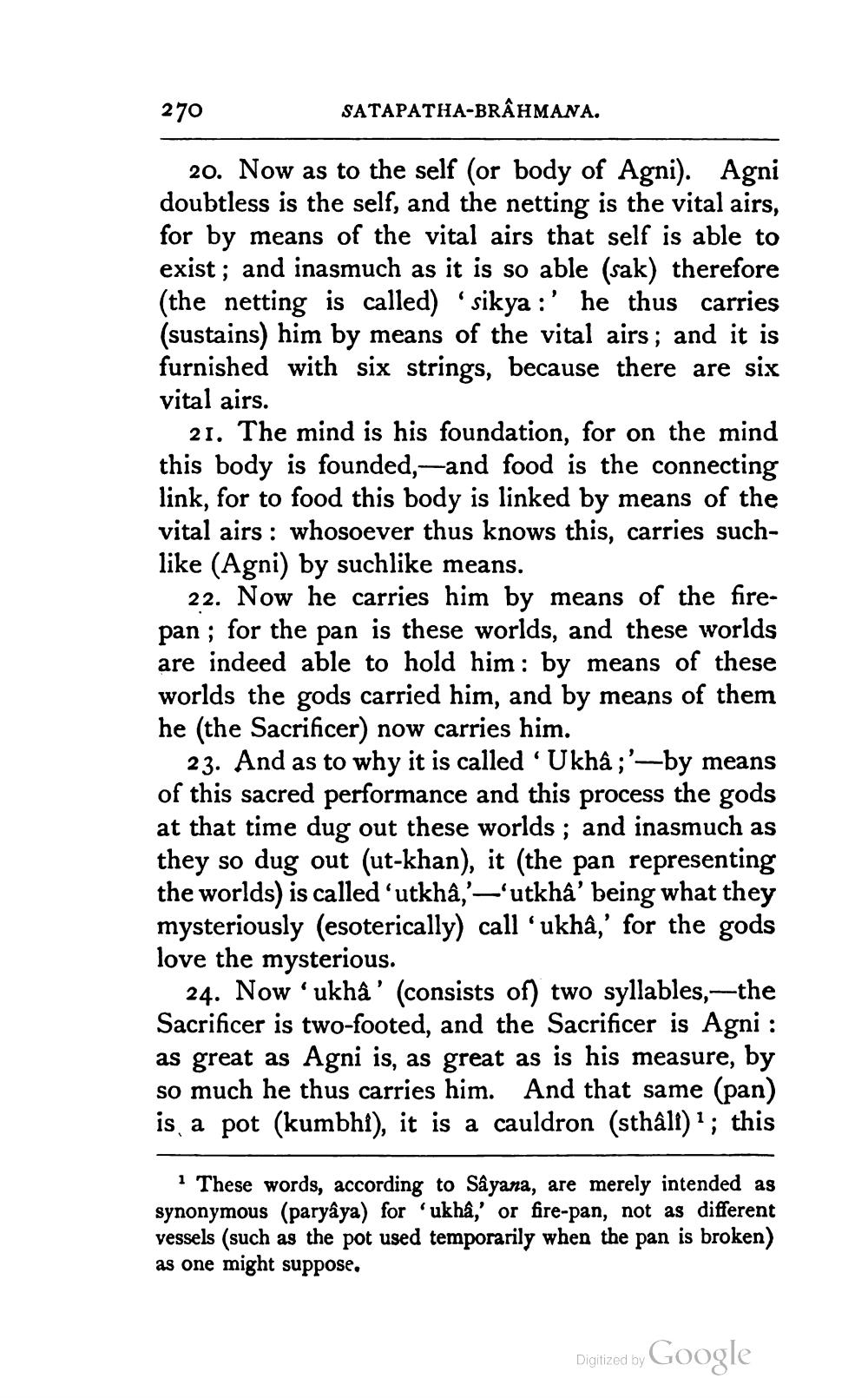________________
270
SATAPATHA-BRAHMANA.
20. Now as to the self (or body of Agni). Agni doubtless is the self, and the netting is the vital airs, for by means of the vital airs that self is able to exist; and inasmuch as it is so able (sak) therefore (the netting is called) 'sikya :' he thus carries (sustains) him by means of the vital airs; and it is furnished with six strings, because there are six vital airs.
21. The mind is his foundation, for on the mind this body is founded, -and food is the connecting link, for to food this body is linked by means of the vital airs : whosoever thus knows this, carries suchlike (Agni) by suchlike means.
22. Now he carries him by means of the firepan; for the pan is these worlds, and these worlds are indeed able to hold him: by means of these worlds the gods carried him, and by means of them he (the Sacrificer) now carries him.
23. And as to why it is called 'Ukhâ ;'-by means of this sacred performance and this process the gods at that time dug out these worlds ; and inasmuch as they so dug out (ut-khan), it (the pan representing the worlds) is called 'utkhâ,'—'utkha' being what they mysteriously (esoterically) call'ukha,' for the gods love the mysterious.
24. Now'ukhâ' (consists of) two syllables,-the Sacrificer is two-footed, and the Sacrificer is Agni : as great as Agni is, as great as is his measure, by so much he thus carries him. And that same (pan) is, a pot (kumbhi), it is a cauldron (sthåll) ; this
1 These words, according to Sâyana, are merely intended as synonymous (paryâya) for 'ukha,' or fire-pan, not as different vessels (such as the pot used temporarily when the pan is broken) as one might suppose.
Digitized by Google




